Iran’s Government Holds Meeting As EU Awaits Answer On JCPOA
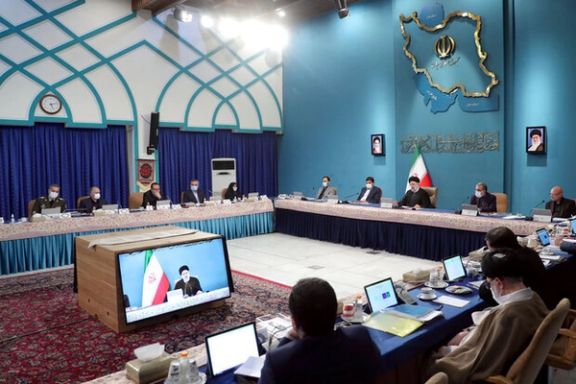
While reports say Iran is pressed to make a decision about the EU-proposed text for a final agreement to save the 2015 nuclear deal, the Raisi administration held a meeting Sunday evening.

While reports say Iran is pressed to make a decision about the EU-proposed text for a final agreement to save the 2015 nuclear deal, the Raisi administration held a meeting Sunday evening.
There was no mention of the nuclear deal, the JCPOA, in the official readout of the cabinet meeting, and state agencies reported that President Ebrahim Raisi only talked about the "discourse of resistance" as the only effective way to tackle problems facing the Islamic World.
‘Resistance’ is a label Tehran uses to refer to its allies and proxies in the Middle East who follow its foreign and regional policies.
Referring to August 14 designated as the “Day of Islamic Resistance” in the official calendar of the country, the president praised the concept of resistance in confronting “world arrogance”, an expression the Islamic Republic uses to refer to the United States.
As the European Union submitted a final take-it-or-leave-it proposal to restore the Iran nuclear deal, some reports say Iran is unlikely to agree to a return to the JCPOA.
The new text reportedly includes guarantees that foreign companies will be able to invest in Iran or operate there once sanctions are lifted, without fearing the repercussions of any party withdrawing from the deal, as the United States did in 2018 under President Donald Trump, but Tehran demanded more drastic concessions outside the scope of the original agreement, including over an International Atomic Energy Agency probe into undeclared nuclear material found in the country.
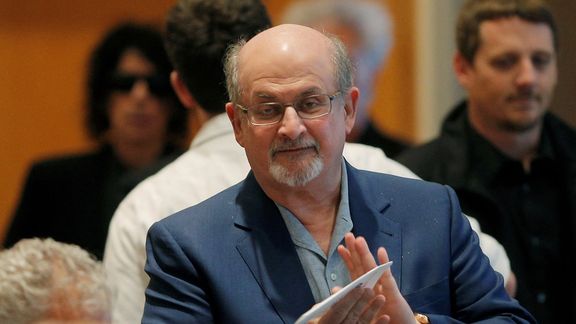
Iran's hardline media doubled down on praise for the attack on Salman Rushdie as many condemned the stabbing by a man sympathetic to Shiite extremism.
Iran’s government and top officials have not reacted to the attack in New York on Friday on the Indian born author of Satanic Verses, but hardline media have openly welcomed the act, praising the assailant and calling it “divine vengeance”. They have also suggestedthat the attack maybe a US or Israeli plot to discredit Iran and spread Islamophobia.
Jam-e Jam, a newspaper run by the state broadcaster IRIB on Sunday bore the headline “Devil’s Eye Blinded” with a graphic on its frontpage, showing Rushdie’s head with devil’s horns. Kayhan, a hardline newspaper, ran the headline “Salman Rushdie Smitten by God’s Vengeance: Trump and Pompeo Next in Line”.
The head of the state broadcaster and the managing director of Kayhan are both Supreme Leader Ali Khamenei’s appointees.
Kayhan argued that the attempt on Rushdie’s life was a “Sharia-based execution” for apostasy and claimed that world powers “are cunningly trying to prevent the execution of divine commands” by calling them “acts of terror”. “The United States, Israel, and the West will not be able to stop the Muslim umma (nation) [from carrying out divine commands] no matter how much noise they make about Rushdie's execution.”
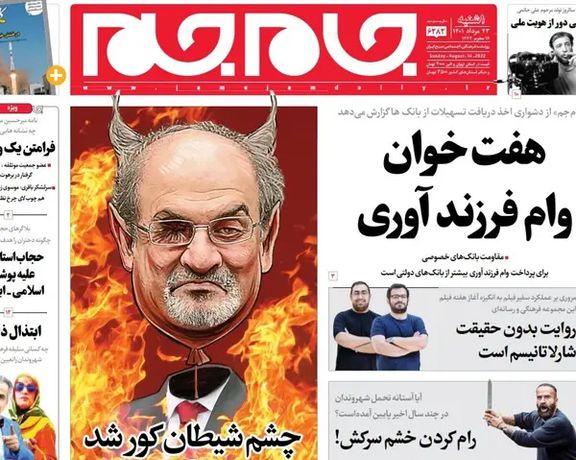
The reformist Arman-e Emrouz newspaper, however, focused on what it called “New Round of Iranophobia Codenamed Salman Rushdie”. It interviewed two commentators who said “US Republicans and the Israeli lobby” are blaming Iran for the attack to prevent Tehran and Washington from resolving the nuclear issue. “We should be expecting a new wave of damage to Iran as well as the Democrat administration in the US,” Ali Bigdeli, one of the commentators said.
US President Joe Biden, in a statement Saturday, called the attack “vicious”. “Salman Rushdie—with his insight into humanity, with his unmatched sense for story, with his refusal to be intimidated or silenced—stands for essential, universal ideals. Truth. Courage. Resilience ...we reaffirm our commitment to those deeply American values in solidarity with Rushdie and all those who stand for freedom of expression,” the statement said.
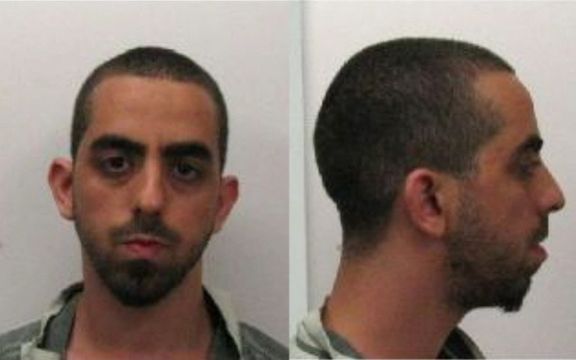
Biden’s critics have pointed out that nowhere in the statement has he mentioned Iran or its bounty on Rushdie. “Finally, POTUSweighs in with a statement on Salman Rushdie, as he should. But again, there is no addressing of Iran's incitement or policy consequences. The question remains: How will the US deter Tehran-directed or inspired attacks against Americans?” Policy Director at United Against Nuclear Iran, tweeted Saturday.
“That Rushdie should be attacked in America no less is especially chilling, coming as it does just weeks after an assassin was arrested on the doorstep of prominent dissident Masih Alinejad and just days after revelations that Iran commissioned a terror attack on John Bolton,” Kylie Moore-Gilbert, British-Australian academic previously held hostage in Iran for over two years, said in a tweet.
Rishi Sunak, one of two conservativecandidates seeking to become Britain's next prime minister, said Saturday that the attack on Rushdie should be a “wake-up call” for the West about the threat which Iran still poses.
Sunak also suggested that the response by Iranian politicians and senior figures strengthens the case for designating the IRGC as a terrorist organizationwhile warning about the futility of attempts to restore the nuclear deal. "We urgently need a new, strengthened deal and much tougher sanctions, and if we can’t get results then we have to start asking whether the JCPOA is at a dead end."
Rushdie who was hospitalized on Friday with serious injuries after being repeatedly stabbed at a public appearance in New York state, is off a ventilator and his condition is improving, his agent said on Sunday.
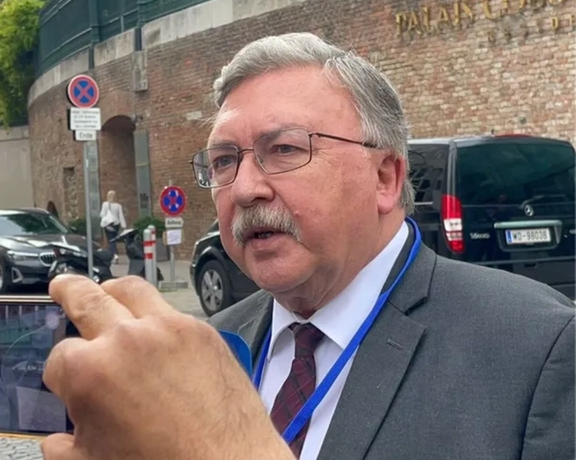
Moscow’s chief negotiator at Iran nuclear talks says an agreement may be reached as early as next week, a statement typical of the Russian diplomat who usually keeps a tint of optimism.
In an interview with TASS published on Sunday, Mikhail Ulyanov, Russia’s permanent representative to the international organizations in Vienna, said, "In the event of favorable development of events the final agreement may be reached as early as next week."
Underlining that EU coordinators have made several amendments to the text that is on the table now, Ulyanov noted that "However, it is possible if all countries participating in the Vienna talks agree with the version of the text provided by EU coordinators on August 8. If amendments, objections appear it is difficult to project further developments now. We have to wait for the beginning of next week.”
Emphasizing that the current text is “not an EU text,” he explained that it is developed by all participants of the talks that have been underway since April 2021.
He reiterated that the US has apparently agreed, whereas Iran has not yet defined its position on the text, which is why “I will not speculate on what issues Teheran may still have. As coordinators, the EU’s representatives may offer compromise options, which they did.”
Conflicting messages came at the end of the latest round of Vienna talks to salvage the 2015 nuclear pact, which concluded on August 7 after 16 months of negotiations, as Ulyanov expressed optimism, the US envoy Rob Malley was quoted as voicing disappointment, and Tehran urging Washington to be flexible.
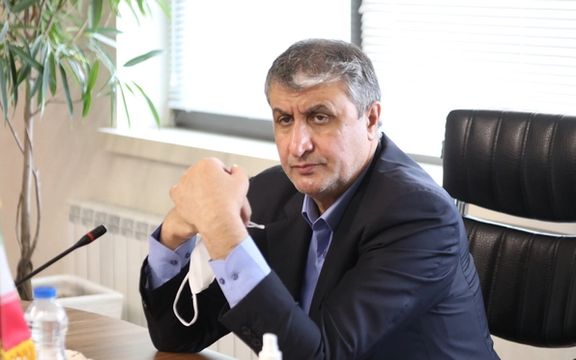
Mohammad Eslami, Iran's current nuclear chief, played a key role in the secret part of the country’s nuclear program, according to a confidential source.
President Ebrahim Raisi appointed Eslami to his current position in 2021 amid pressure by the International Atomic Energy Agency (IAEA) regarding uranium traces found at three nuclear facilities used prior to 2003 when Iran’s nuclear program was secret.
The source who is familiar with the inner workings of AEOI told Iran International that Eslami has the task of erasing the traces of suspicious nuclear activities of the Islamic Republic.
There is reason to believe that the three sites were not only used prior to 2003, but also much later.
Eslami had served as Minister of Roads and Urban Development in the former government and his appointment as nuclear chief surprised many. For the younger generation, the former official’s background seemed unrelated to his nuclear post.
However, a look at Eslami’s resume shows that he played a crucial role in the most critical stages of Tehran’s secret nuclear projects.
Between 1987 and 1989, an envoy from the Ministry of Defense traveled to Dubai to meet Abdul Qadeer Khan, a Pakistani scientist who sold nuclear knowledge and enrichment equipment to the Islamic Republic.
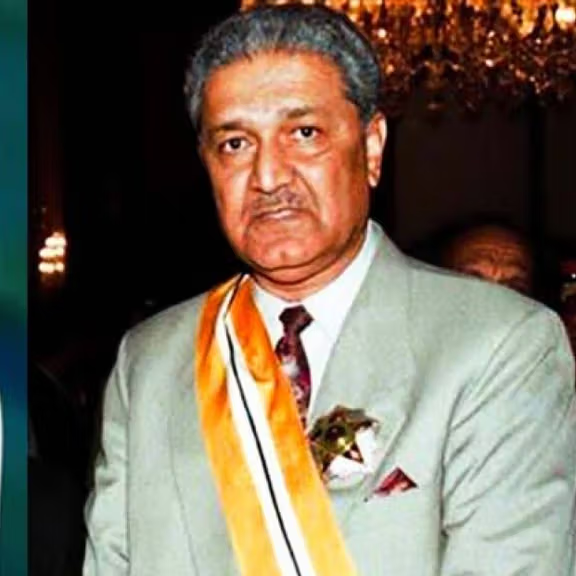
Years later, Abdul Qadeer Khan confirmed the deal with the Islamic Republic in a television interview.
The source with links to the Iranian Organization of the Defensive Innovation and Research (SPND) said, that the mission to Khan was carried out under the supervision of an office headed by Mohammad Eslami.
In a chart leaked from nuclear documents stolen from Iran by Israel, the role of Mohammad Eslami is prominent. As the head of the Defense Industries Educational and Research Institute, he was involved in all aspects of Iran's secret nuclear program that grew into various branches over the years.
One of the most important of these was the Amad project, the Islamic Republic's plan to build an atomic warhead that was pursued under the supervision of Mohsen Fakhrizadeh, Iran's prominent nuclear figure and was stopped in 2003 when it was revealed or leaked.
Fakhrizadeh was assassinated in November 2020, reportedly by Israel in a complicated operation resembling Hollywood thrillers.
The source in SPND said the supervisor of this project was Eslami, and the funds allocated to these programs were spent directly in line with Mohammad Eslami's discretion.
With the closure of the "Amad" project, Iran's secret nuclear projects continued in a new organization, the SPND.
For two years after the signing of the JCPOA, Eslami was the deputy of industrial and research affairs of the Ministry of Defense and a member of Iran's nuclear program.
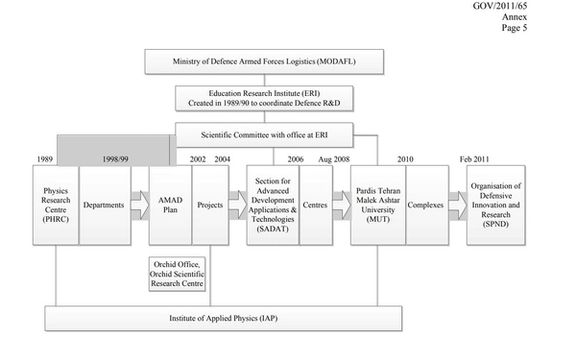
An office mentioned in the nuclear administrative chart of the Islamic Republic is of particular interest. The Orchid Office is an important center in Iran's program to acquire nuclear weapons, according to our source. A building on Orchid Street in Pasdaran district, Tehran, is where major contracts are signed was managed until two years ago by Eslami until Fakhrizadeh was assassinated.
SPND was the center where Fakhrizadeh was pursuing his unfinished plan for the Amad project on a separate budget line.
The United States has sanctioned SPND exactly for its secretive nuclear work.
The two nuclear sites of Sorkh-eh-hesar, [Tehran], and Marivan near Abadeh, Fars Province, were given to SPND so that Fakhrizadeh could pursue his plan to produce nuclear weapons with the cooperation of Saeed Borji, an expert in atomic explosions.
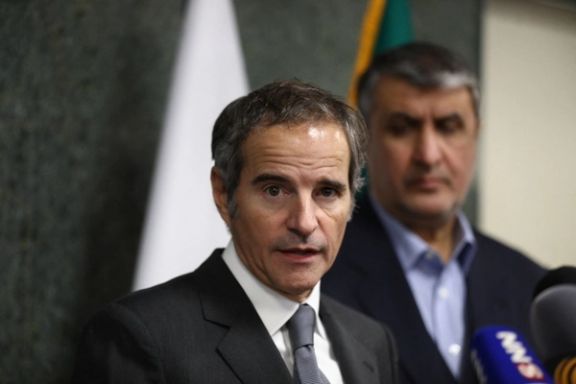
However, by looking at the history of the Atomic Energy Organization of Iran, each of the heads of this organization was appointed out of a specific necessity.
During the years when the secret nuclear program was pursued in the Ministry of Defense, Reza Amralahi was the head of the organization.
With the development of this program and the need to build and equip extensive facilities such as Natanz, in Esfahan Province, Gholamreza Aghazadeh became the head of the organization. This former oil minister had the power to inject cash into Iran's nuclear program.
His strong disagreement with then-president Mahmoud Ahmadinejad led Ali Akbar Salehi to become the head of the organization. Salehi who was Iran’s former representative at the IAEA took the helm of the Atomic Energy Organization when the negotiating team when the UN Security Council was issuing sanction after sanction against Iran in early 2010s.
With the assassination of nuclear scientists and under the pressure of the Revolutionary Guards, Fereydoun Abbasi became the head of the Atomic Energy Organization, who himself had survived an assassination.
Although years later, in an interview with the Ensaf News website, which was deleted after publication, a security official considered his assassination suspicious and raised the possibility that he was a spy. Abbasi was one of Fakhrizadeh's colleagues and one of his vociferous opponents and rivals.
When the JCPOA’s time arrived, Salehi returned to the AEOI as a scientific figure.
With the election of Raisi in the most engineered election in the history of the Islamic Republic, Eslami is the repository of Islamic Republic’s nuclear secrets and was appointed as the best suited person in the post of nuclear chief to eradicate all traces.
He announced August 1 that the Islamic Republic had achieved the ability to build nuclear weapons.
During his one-year tenure, Iran has hardened its position not to provide further explanations to the IAEA on past nuclear work and Eslami has turned off most of the international watchdog’s monitoring equipment in Iran’s nuclear facilities.
He seems to be a man who has returned to Iran’s Atomic Energy Organization to clear his and his colleagues’ footprints on the secret part of Iran’s nuclear program.
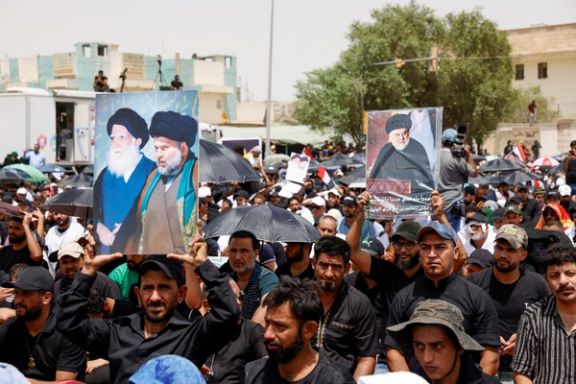
Following a call by Iraq's influential cleric Muqtada al-Sadr to extend the scope of protest rallies, several government offices in Baghdad were besieged by his supporters on Sunday.
Thousands of al-Sadr’s followers prayed outside parliament on Friday in a show of support for the populist leader, who has given a "final ultimatum" to Iran-backed Shiite groups and called on the judiciary to dissolve parliament by the end of next week. The judiciary has said it does not have the authority to do so.
Supporters of rival Iraqi factions have been on the streets of Baghdad since Friday to call for a new government, with supporters of Sadr -- who seeks to curb the influence of the Islamic Republic in Iraqi politics -- demanding early elections and his Iran-backed opponents saying the results of last October's poll should be honored.
While supporters of the Sadrist movement have occupied the fortified Green Zone, which houses parliament, government buildings and foreign embassies, the proponents of the Coordination Framework -- a coalition of Shiite parties close to Tehran – have held a rally in one of Baghdad’s streets.
The protests in the green zone are a show of force by the firebrand cleric whose party won the highest number of seats in the October 2021 elections but withdrew after failing to form a government with Sunni and Kurdish allies in Iraq's hectic power-sharing system. Iran-backed parties have dominated many state institutions for years.
Last Friday, August 5, thousands of protesters from Iraq's southern provinces entered Baghdad's Green Zone again, chanting slogans against Iran’s interference in Iraq’s internal affairs.
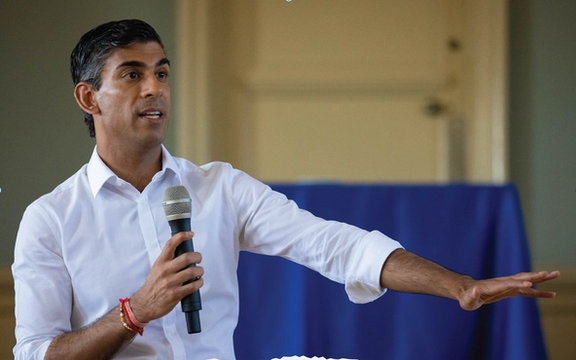
A prime ministerial candidate says the UK must sanction Iran over the attack on Salman Rushdie as police believe the perpetrator was sympathetic to Shiite extremism and IRGC.
Conservative hopeful Rishi Sunak said on Saturday that Britain should designate Iran’s Revolutionary Guards as a terrorist organization, warning that the stabbing should be a “wake-up call for the West”.
The conservative politician noted that the response to the stabbing by Iranian politicians and senior figures strengthens the case for proscribing Tehran’s elite military unit. He also suggested that the Vienna talks to salvage the 2015 nuclear deal with Iran may have reached “a dead end”.
Hadi Matar, the pro-Iran fanatic that stabbed the author at an event in New York state on Friday, was charged with attempted murder on Saturday.
A preliminary investigation by police, including of the 24-year-old’s social media accounts, suggested he was sympathetic to Iran’s Revolutionary Guard, as his Facebook account featured pictures of Qasem Soleimani, the IRGC general who was killed in a US drone strike in 2020, and Iran’s Supreme Leader. He was in possession of a fake driving license that had the surname of a Hezbollah leader allied to Soleimani.
Rushdie, who spent years in hiding after Iran urged Muslims to kill him over his novel "The Satanic Verses", was stabbed in the neck and torso on stage at a lecture on Friday. He has been taken off a ventilator and is now able to talk.
Iran’s Kayhan daily linked to Iran’s Supreme Leader said “a thousand bravos” to the man who attacked Salman Rushdie, implying that his throat should have been cut.